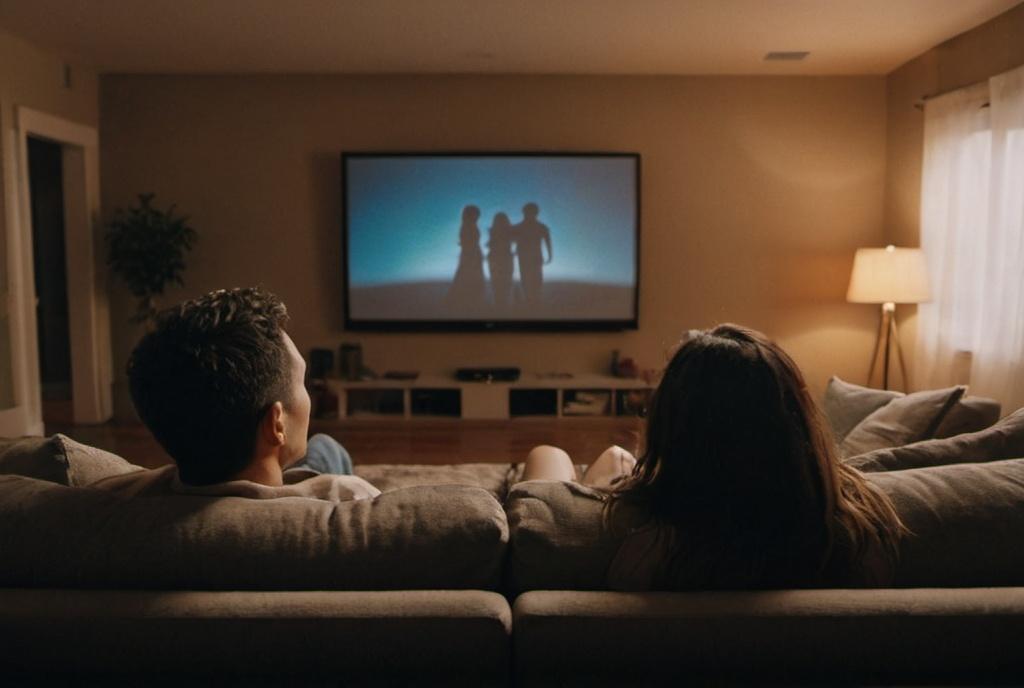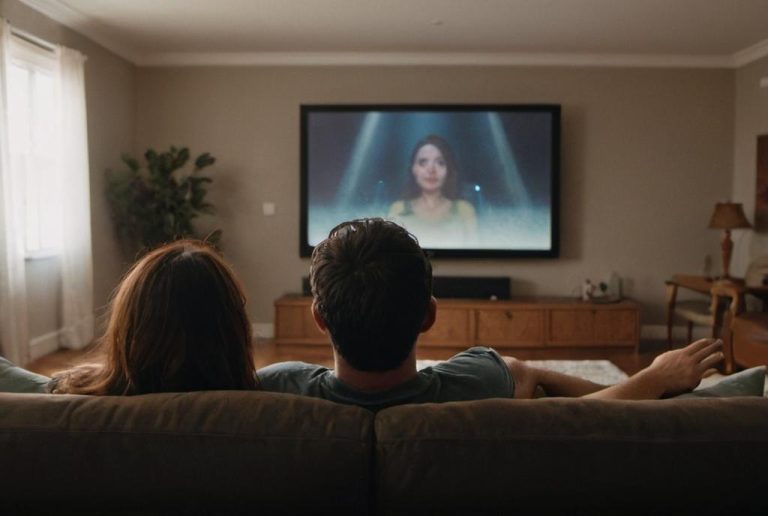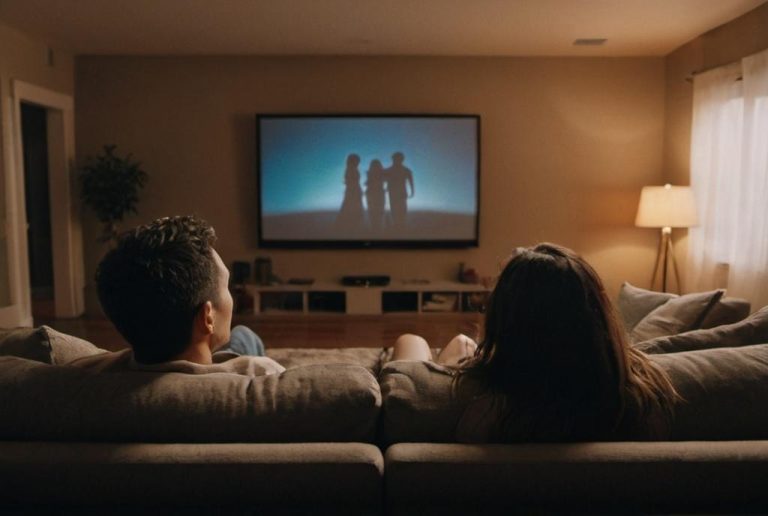
Key Take Aways About impact of ai on filmmaking
- AI enhances scriptwriting, assisting writers with dialogue and plot ideas while not replacing human creativity.
- AI-driven animation and visual effects streamline production, reducing costs and time while enabling creative innovation.
- AI in editing boosts efficiency, helping editors by selecting key footage and enhancing storytelling precision.
- AI analyzes audience data to guide studios in making informed production and marketing decisions.
- AI optimizes production management, ensuring efficient scheduling and budgeting processes.
- Personalized AI marketing targets specific audiences effectively to boost ticket sales.
- Ethical concerns arise over AI contributions and its role with actors’ digital likenesses.
- AI and humans collaborate, enhancing filmmaking without replacing traditional techniques.

The Integration of AI in Filmmaking
There’s a conversation happening in the movie biz that’s like an underground whisper turning into a full-on talk show topic. It’s AI and how it’s shaking up filmmaking. If you’ve ever wondered how computers could mix with moviemaking magic, you’re in for a treat. Let’s chat about how AI is slipping into the director’s chair, turning our silver screens into digital canvases.
AI in Scriptwriting: A New Writing Partner?
Think of your typical movie script — drama, action, witty dialogue. Now imagine artificial intelligence jumping into the writer’s room. Believe it or not, AI’s got a knack for spitting out that snappy dialogue and crafting those twirling plot twists. But don’t worry, the classic brain-storming with coffee-fueled writers isn’t dead. AI’s more like that shy kid in class who suddenly answers all the questions. It’s not perfect, but it sure is a nifty tool for generating initial drafts or brainstorming ideas when everyone else has hit a wall.
AI-Driven Animation and Visual Effects
Here’s where it gets visually exciting. AI can crunch through hours of rendering time, making special effects that are not just cheap tricks. It’s like having a backstage pass to a magic show, where the magician’s assistant is a super-computer that doesn’t tire or need coffee breaks. It’s all about creating those eye-popping visuals without breaking the bank or the clock, leaving more room for creative genius to shine.
Editing with AI: Not Your Average Scissors
Remember the days when editing was all about cutting film strips and piecing them back together? Fast forward to AI stepping into the editing suite. It’s almost like having an invisible hand trimming the fat and keeping the juicy parts. AI can analyze hours of footage, pick out the golden shots, and even suggest what might keep audiences on the edge of their seats. It’s not putting editors out of a job, rather it’s making them faster and more precise.
Audience Insights and Predictive Analytics
Studios have always had a knack for guessing what audiences want, but what if they could stop guessing? Enter AI with its massive data crunching powers. It’s like having a sneak peek into the moviegoer’s mind. By analyzing trends, social media chatter, and viewing habits, AI helps studios decide whether to greenlight that quirky indie flick or the next superhero saga. It’s not about eliminating risk but about making informed bets that could pay off big time.
Production Management: Keeping Things on Track
Producing a film is like trying to juggle a hundred flaming torches while riding a unicycle. AI’s helping with that circus act by optimizing scheduling, managing budgets, and keeping everyone in the loop. It’s like having an all-seeing eye watching over the entire production process, pointing out where things might derail and offering solutions before anyone notices.
AI’s Footprint in Marketing
Ever felt like a movie trailer was speaking directly to you? That’s AI in marketing. By tailoring ads to specific viewer preferences, AI ensures that the right audience sees the right preview, increasing the chances of ticket sales. It’s personal without being creepy — a fine line that AI seems to be good at walking.
The Ethical Questions: Who Owns What?
Of course, with all these advancements, there are questions that aren’t just techy but philosophical too. If an AI contributes to a screenplay, does it get a writing credit? And what about the ethical implications of AI creating a digital version of an actor who’s long gone? These are the questions keeping film execs up at night, and there are no easy answers yet.
A Future with AI and Humans Side by Side
The fear that robots are taking over Hollywood is a bit playful and somewhat exaggerated. AI’s role is more about collaboration than domination. It’s a new tool in the filmmaker’s kit, one that sits alongside traditional techniques, enhancing them rather than replacing them. The industry’s learning to dance with this new partner, and it’s a dance that promises to be both awkward and awe-inspiring at times.
AI’s influence on filmmaking brings to mind those plot twists that keep audiences guessing. Just when you think you know where it’s all heading, something unexpected changes the game. And isn’t that what makes cinema so compelling? Watching the unfolding story, not knowing what comes next, but eager to find out.



